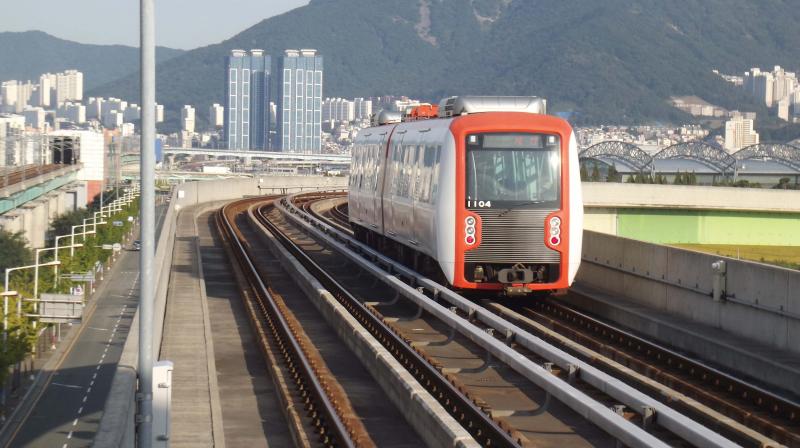Heavy breakup: The Light Metro Conundrum
Controversies over the proposed Light Metro expose poor state of policy-making in the state.

KOCHI: The controversy over the light metro projects in Kozhikode and Thiruvananthapuram has exposed the follies in public policy-making in the state. Instead of focussing on the techno-economic feasibility of the projects, the debate has centred on Mr E. Sreedharan, an outstanding figure in building transport infrastructure in the country. Although the two projects were being bandied about as solutions to the mobility problems of the two cities for the past seven years, the government's inability to take a firm decision shows the failure in policy-making. Chief Minister Pinarayi Vijayan and Finance Minister Thomas Isaac have at last asserted that the light metro projects will be implemented only after taking into account all aspects. Mr Pinarayi Vijayan mentioned the mounting losses of the Kochi Metro while replying to questions in the Assembly in connection with the light metro projects.
Undoubtedly, Mr Sreedharan has been instrumental in bringing a paradigm change in the project implementation history of the country with his management of the Konkan Railway and Delhi Metro projects. But his insistence on metro and light metro projects as solutions to the urban mobility problems in a state like Kerala has drawn criticism from many quarters. A series of discussions was held in Kozhikode about the need for mono rail, the earlier avatar of light metro, for the city during 2012-13. The high capital investment needed for the project and its potential benefits were questioned. The issue is whether Kerala, a financially starved state, can afford to commit such huge amounts for two projects that would be beneficial for a small section of the people. Instead of focusing on this crucial matter, the discussions have been reduced to the competency and personal integrity of Mr Sreedharan which were never in question.
The state government, which has not bothered to pay any attention to the critical voices, has made matters worse by saying that DMRC has withdrawn from the project as its contract ended even as the CM and FM talked of the need for a careful look at these projects. The lack of clarity on the part of the state government was further evident from the fact that it plans to go ahead with the venture. Instead of engaging in open and transparent discussions about issues of urban mobility, the government and the bureaucracy opted for a policy of drift even as the state exchequer faced the challenge of raising resources for the venture.
The Delhi Metro Rail Corporation appointed by the state government to undertake a detailed project report of the monorail projects in Kozhikode and Thiurvnanathapuram submitted the same seeking in-principle approval of the Union government in September 2015. The Urban Development Ministry sat on the proposal for more than a year. The Union government adopting a new metro policy in November 2017 has raised fresh question marks over the future of the projects. The scheme has to be reworked as the metro policy adopted by the government insisted on private participation for any future metro projects. Although the DMRC submitted the same DPR with some revisions the Union government has not taken any decision on the matter. Instead of indulging a slugfest in the name of Mr Sreedharan, the political class should deliberate whether the state has the resources to undertake these two projects.
Key features of new metro policy
Private participation either for complete provision of metro rail or for some unbundled components (like Automatic Fare Collection, Operation & Maintenance of services etc) will form an essential requirement for all metro rail projects seeking central financial assistance” says the policy, to capitalize on private resources, expertise and entrepreneurship.
In view of inadequate availability and even absence of last mile connectivity at present, the new policy seeks to ensure it focusing on a catchment area of five kms. on either side of metro stations requiring States to commit in project reports to provide necessary last mile connectivity through feeder services, Non-Motorised Transport infrastructure like walking and cycling pathways and introduction of para-transport facilities. States, proposing new metro projects will be required to indicate in project report the proposals and investments that would be made for such services.
Seeking to ensure that least cost mass transit mode is selected for public transport, the new policy mandates Alternate Analysis, requiring evaluation of other modes of mass transit like BRTS (Bus Rapid Transit System), Light Rail Transit, Tramways, Metro Rail and Regional Rail in terms of demand, capacity, cost and ease of implementation. Setting up of Urban Metropolitan Transport Authority (UMTA) has been made mandatory which is to prepare Comprehensive Mobility Plans for cities for ensuring complete multi-modal integration for optimal utilization of capacities.
The new Metro Rail Policy provides for rigorous assessment of new metro proposals and proposes an independent third party assessment by agencies to be identified by the Government like the Institute of Urban Transport and other such Centres of Excellence whose capacities would be augmented, as required in this regard.

